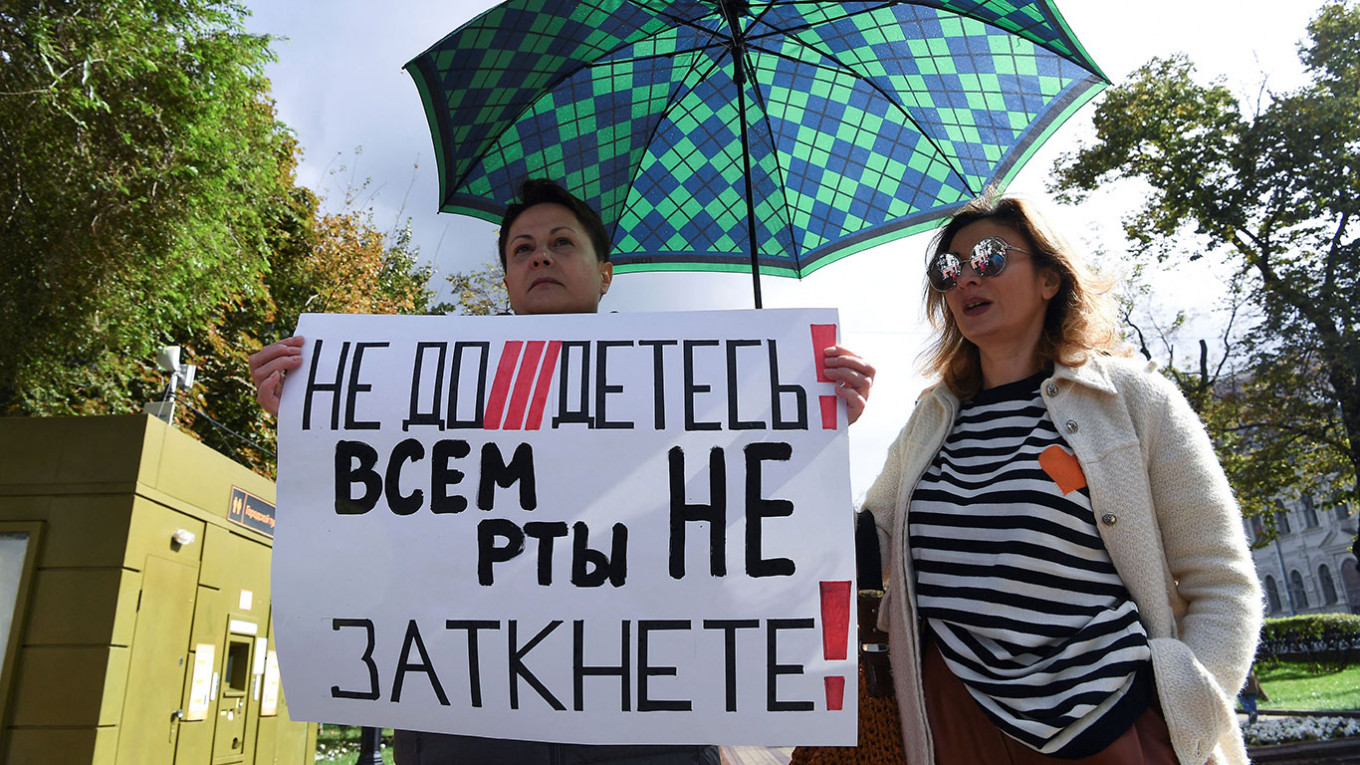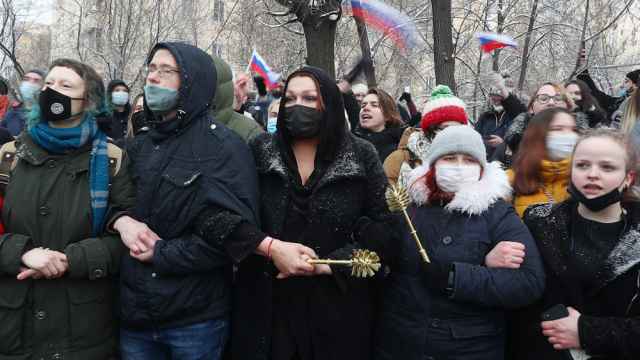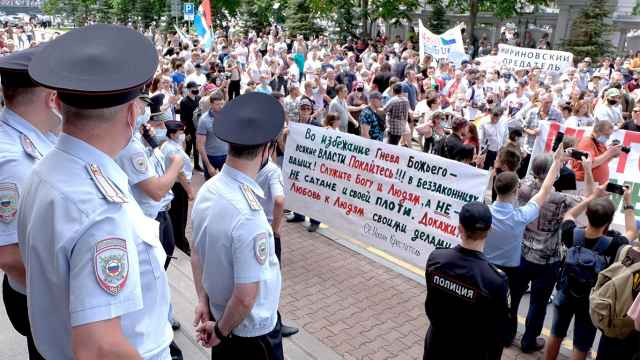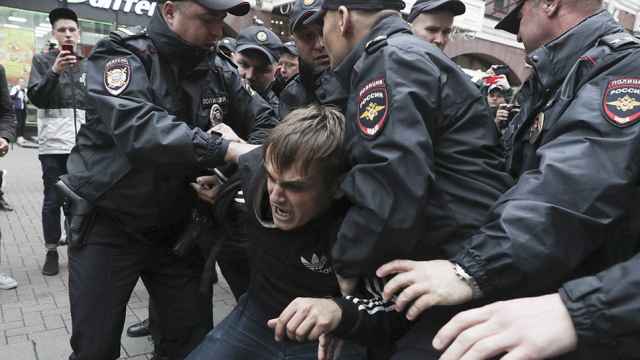Russians are less likely to view economic protests as a possibility than they did at the start of the year despite being more willing to take part in such protests themselves, according to an independent poll published Monday.
The decrease in protest expectations comes amid what Kremlin critics describe as a tightening clampdown on the opposition, independent media and protest activity ahead of this month’s parliamentary vote. The Sept. 19 elections are a key test for the ruling, pro-Kremlin United Russia party, which seeks to maintain its majority despite historic unpopularity.
While 43% of Russian respondents said they expected protests with economic demands in January, only 26% of respondents said the same in August, the independent Levada Center pollster said.
At the same time, respondents’ own willingness to take to the streets for economic demands rose from 17% in January to 24% in August.
An Aug. 26 poll by the Levada Center said that 2 in 5 Russians can’t afford necessities as rising inflation has driven up prices for groceries and basic goods.
The share of Russians who see political protests as a possibility has also fallen from 45% in January to 27% in August.
At the same time, the willingness to participate in such protests has also grown from 15% in January to 19% in August.
Low-income Russians, as well as those who believe the country is headed in the wrong direction and those who disapprove of the president's activities, were most likely to express willingness to protest with economic and political demands, Levada said.
Mass protests erupted across dozens of Russian cities in January and February, fueled both by calls for jailed Kremlin critic Alexei Navalny’s release as well as discontent over falling living standards. The unauthorized rallies were met with a harsh crackdown, with thousands of protesters detained nationwide.
A Message from The Moscow Times:
Dear readers,
We are facing unprecedented challenges. Russia's Prosecutor General's Office has designated The Moscow Times as an "undesirable" organization, criminalizing our work and putting our staff at risk of prosecution. This follows our earlier unjust labeling as a "foreign agent."
These actions are direct attempts to silence independent journalism in Russia. The authorities claim our work "discredits the decisions of the Russian leadership." We see things differently: we strive to provide accurate, unbiased reporting on Russia.
We, the journalists of The Moscow Times, refuse to be silenced. But to continue our work, we need your help.
Your support, no matter how small, makes a world of difference. If you can, please support us monthly starting from just $2. It's quick to set up, and every contribution makes a significant impact.
By supporting The Moscow Times, you're defending open, independent journalism in the face of repression. Thank you for standing with us.
Remind me later.






